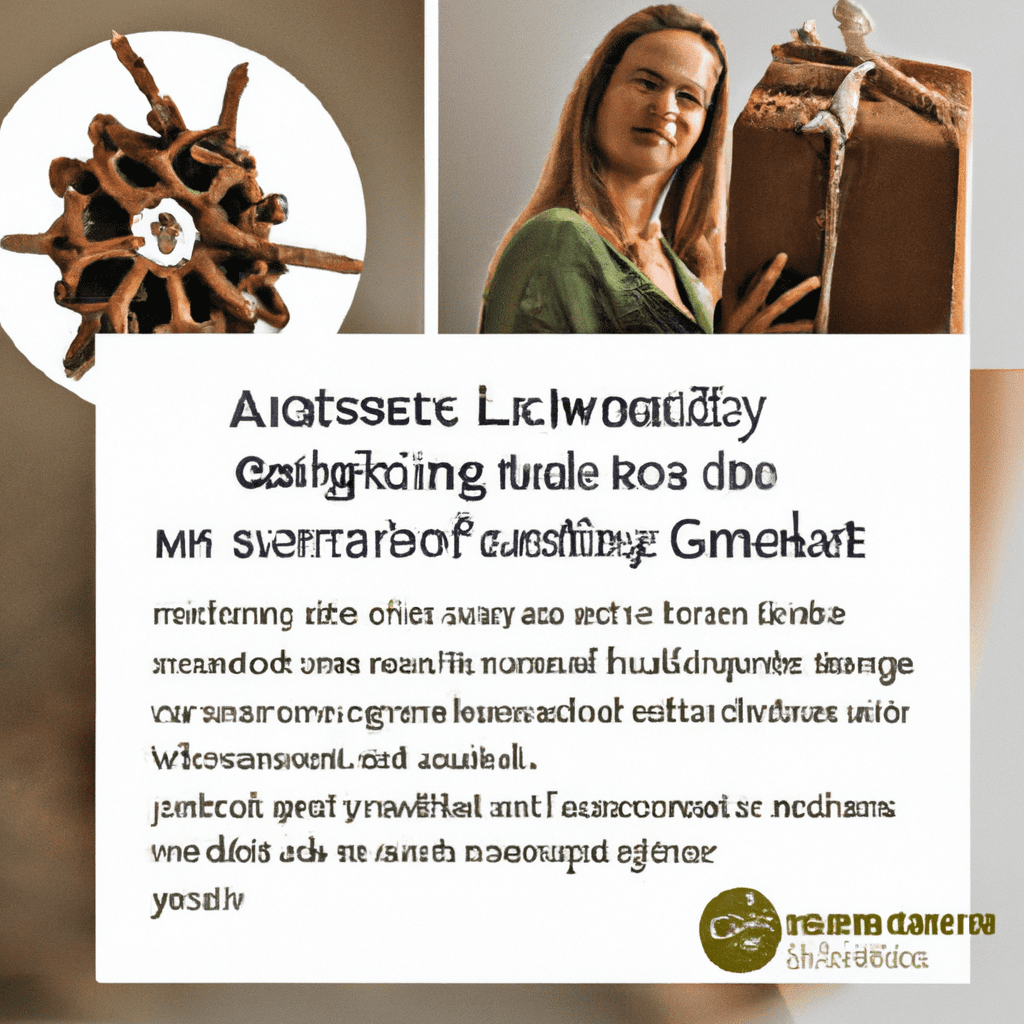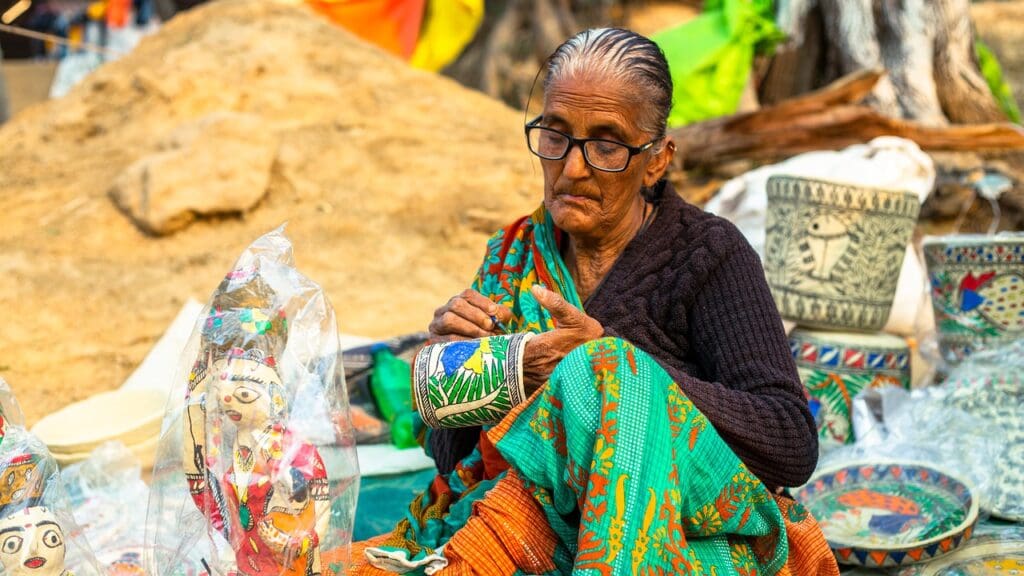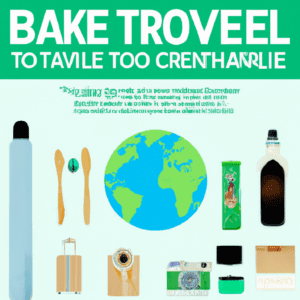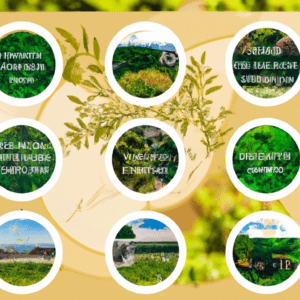In a world filled with mass-produced products and impersonal gifts, there is something truly special about receiving a handmade present. The joy and thoughtfulness that goes into creating a sustainable gift with a personal touch is second to none. Whether it’s a knitted scarf, a hand-carved wooden ornament, or a homemade candle, these unique treasures hold a beauty that cannot be replicated. Not only do these creations showcase the talent and creativity of the maker, but they also promote a sustainable lifestyle by reducing waste and supporting local artisans. So, if you’re looking to add a touch of warmth and individuality to your gift-giving, why not consider crafting something handmade and heartfelt?


Sustainable DIY Projects
Reduce, Reuse, Recycle: The Essence of Sustainability
When it comes to sustainable DIY projects, the mantra of “reduce, reuse, recycle” is at the core. By focusing on these three principles, you can make a significant impact on the environment while enjoying the satisfaction of creating something unique and personalized. Start by examining your consumption habits and finding ways to reduce waste. This can be as simple as opting for reusable items instead of disposable ones or being mindful of your energy and water usage.
Reusing items is another key aspect of sustainability. Before throwing something away, ask yourself if it can be repurposed or given a new life. You might be surprised at the creative possibilities that lie within everyday objects. By giving these items a second chance, you not only reduce waste but also showcase your creativity and resourcefulness.
Recycling is perhaps the most well-known component of sustainability. By separating your recyclable materials and ensuring they are properly recycled, you contribute to the conservation of natural resources and the reduction of greenhouse gas emissions. With a little research, you can find local recycling programs or centers that accept a wide range of materials, from paper and plastics to electronics and batteries. Remember to properly clean and prepare items for recycling to ensure they can be processed efficiently.
Choosing Eco-Friendly Materials for Your DIY Projects
When embarking on a sustainable DIY project, the materials you choose play a crucial role in minimizing your environmental footprint. Opt for eco-friendly materials that are sourced responsibly, have a low impact on the environment, and are free from harmful chemicals. One popular choice is organic, natural materials such as cotton, linen, or bamboo fabric. These materials are biodegradable, renewable, and often produced using sustainable farming practices.
Another aspect to consider is the use of recycled or upcycled materials. Instead of buying brand new materials, look for ways to repurpose or salvage items that would otherwise end up in the landfill. This not only reduces waste but also adds a unique and eclectic touch to your creations. For example, old glass bottles can be transformed into elegant vases, and worn-out jeans can be upcycled into trendy tote bags.
Avoiding plastics and synthetic materials is also essential for eco-friendly DIY projects. These materials often take a long time to degrade and release harmful toxins into the environment. Instead, opt for biodegradable alternatives such as natural rubber, cork, or wood. By making conscious choices about the materials you use, you can create beautiful and sustainable DIY projects that align with your values.
Repurposing Items: Giving New Life to Old Objects
One of the most rewarding aspects of sustainable DIY projects is the ability to repurpose old items and give them a new lease on life. Before discarding something, take a moment to think creatively about how it can be transformed or repurposed. With a little imagination and DIY skills, you can turn almost anything into a functional and stylish piece.
Finding hidden potential in everyday items can be an exciting and fulfilling process. For example, an old wooden ladder can be transformed into a unique bookshelf, or an antique suitcase can become a charming side table. Look for inspiration online, in thrift stores, or at flea markets, and let your creativity run wild.
Repurposing items not only reduces waste but also adds a touch of character and history to your DIY projects. Each piece tells a story and becomes a conversation starter in your home. By giving old objects new life, you become part of a movement that values sustainability, resourcefulness, and creativity.
Sustainable Craft Ideas for Every Skill Level
No matter your crafting skill level, there are sustainable DIY projects that you can undertake. From simple and quick crafts to more intricate and time-consuming endeavors, the possibilities are endless. Here are a few ideas to inspire you:
-
Beginner Level: Homemade beeswax wraps. By using fabric and beeswax, you can create eco-friendly alternatives to plastic wrap for food storage. This project requires minimal materials and can be accomplished with basic sewing skills.
-
Intermediate Level: Upcycled furniture. Transforming old furniture with a fresh coat of paint or reupholstering it with sustainable fabrics can breathe new life into outdated pieces. With some tools and a little patience, you can create unique and stylish furniture for your home.
-
Advanced Level: DIY solar-powered charger. Combine your passion for sustainability with technology by building a solar-powered charger for your electronic devices. This project involves more complex electrical work and may require specialized tools and materials.
Remember, the key is to start with projects that match your skill level and gradually challenge yourself as you gain more experience. The reward is not only in the finished product but also in knowing that you have created something sustainable and meaningful.
Handmade and Heartfelt: Crafting Sustainable Gifts with a Personal Touch
Exploring the Beauty of Handmade Gifts
There’s something truly special about receiving a handmade gift. Whether it’s a knitted scarf, a hand-painted pottery piece, or a homemade candle, these items carry a personalized touch that mass-produced goods simply can’t replicate. Handmade gifts often reflect the time, effort, and love that went into creating them, making them all the more meaningful.
The beauty of handmade gifts lies in their uniqueness. Each item is one-of-a-kind, showcasing the artistry and creativity of the maker. From intricate details to carefully chosen materials, handmade gifts offer a level of craftsmanship that elevates them to works of art. When you give a handmade gift, you’re not just giving an object, but also a piece of the creator’s heart and soul.
The Meaning and Sentimentality behind Personalized Presents
Personalized presents have a way of capturing the essence of a special occasion or relationship. Whether it’s a customized piece of jewelry with initials or a monogrammed leather notebook, these gifts carry a sense of thoughtfulness and care that can’t be replicated. By adding a personal touch, you create a lasting memory for the recipient.
The power of a personalized gift lies in the emotional connection it fosters. It shows that you took the time to understand the recipient’s interests, preferences, or needs. This level of attention and consideration goes beyond the material value and creates a meaningful and lasting impression.
Benefits of Choosing Sustainable Gifts
When it comes to choosing gifts, sustainability is an important factor to consider. Sustainable gifts have a positive impact on the environment and contribute to building a conscious consumer culture.
One of the primary benefits of sustainable gifts is the reduction of environmental impact. By opting for gifts that are made from environmentally friendly materials or upcycled from existing resources, you support the conservation of natural resources and reduce waste. This small choice can have a significant impact in the long run.
Sustainable gifts also often support ethical and fair trade practices. By purchasing from local artisans or companies that prioritize fair labor conditions, you ensure that your gift supports good practices and empowers communities.
Practical and Eco-Conscious Handcrafted Gift Ideas
When it comes to sustainable and handcrafted gift ideas, the possibilities are endless. Here are a few options to get you started:
-
Natural Beauty Products: Homemade soaps, candles, and scrubs made from natural and sustainable ingredients make for luxurious and eco-friendly gifts. With a little research and the right ingredients, you can create a spa-like experience for your loved ones.
-
Upcycled Home Decor: Transforming discarded items into unique home decor pieces is not only sustainable but also adds a touch of creativity to any space. Old mason jars can become stylish candle holders, and wine corks can be turned into charming coasters.
-
Eco-Friendly Fashion: Handmade clothing and accessories offer a sustainable alternative to fast fashion. From knitted scarves to upcycled tote bags, there is a wide range of options for creating stylish and eco-conscious fashion gifts.
-
Edible Treats: Made with love and sustainable ingredients, homemade edible treats are always a hit. From baked goods to preserves and infused oils, you can create delicious and personalized gifts that are as enjoyable to give as they are to receive.
By choosing practical and eco-conscious handcrafted gifts, you not only demonstrate your creativity and thoughtfulness but also contribute to a more sustainable world.
Exploring the Beauty of Handmade Gifts
Appreciating the Artistry and Creativity
Handmade gifts are an expression of the artistry and creativity of the maker. From carefully crafted ceramics to intricately woven textiles, these gifts showcase the unique skills and talents of the creator. The time and effort put into each piece are evident, resulting in a gift that is both beautiful and meaningful.
Unique and One-of-a-Kind Treasures
One of the greatest joys of receiving a handmade gift is knowing that you have something truly unique and one-of-a-kind. Unlike mass-produced items, handmade gifts have a charm and character that cannot be replicated. Each piece carries the fingerprints and personal touches of the maker, making it a treasure to be cherished.
Supporting Local Artisans and Crafters
Handmade gifts often come from local artisans and crafters who pour their passion into creating each piece. By choosing handmade gifts, you support these talented individuals and contribute to the growth of local economies. Additionally, purchasing from local artisans often means that you are buying from someone who has a deep connection to their craft and can provide insight and background information about the gift.
Quality and Durability
Handmade gifts are often made with a focus on quality and durability. Crafters take pride in their work and strive to create items that can stand the test of time. Unlike mass-produced goods that may be made with lower-quality materials, handmade gifts are typically crafted with care and attention to detail, ensuring that they are built to last.
The beauty of handmade gifts lies in their ability to convey a sense of artistry, uniqueness, and support for local artisans. By giving and receiving handmade gifts, you participate in a special exchange that goes beyond the material object.
The Meaning and Sentimentality behind Personalized Presents
The Power of a Thoughtful Gesture
Personalized presents have a unique power to touch the hearts of those who receive them. They go beyond mere objects and become symbols of love, care, and thoughtfulness. The act of taking the time to choose or create a gift that is tailored specifically to an individual sends a powerful message of appreciation and connection.
Customization: Adding a Personalized Touch
The ability to add a personal touch to a gift is what sets personalized presents apart. From engraving initials onto jewelry to customizing the design of a piece of artwork, customization allows you to make the gift truly one-of-a-kind. Whether it’s incorporating the recipient’s favorite color or including a special message, these personalized details make the gift even more meaningful.
Emotional Connection and Memories
Personalized presents have a way of creating an emotional connection between the giver and the recipient. They often evoke memories, celebrate milestones, or signify the unique bond between individuals. Every time the recipient sees or uses the gift, they are reminded of the special occasion or the person who gave it to them. These gifts become treasured keepsakes that hold a special place in the recipient’s heart.
Celebrating Individuality and Special Occasions
Personalized gifts celebrate the individuality of the recipient and the uniqueness of special occasions. Whether it’s a birthday, wedding, anniversary, or graduation, these gifts capture the essence of the event and create lasting memories. They show that you have taken the time to understand the recipient’s personality, interests, or passions, ensuring that the gift is truly meaningful.
Personalized presents hold a special place in both the giver and recipient’s hearts. By creating a personalized gift, you offer a tangible representation of your relationship and the thoughtfulness behind the gesture.
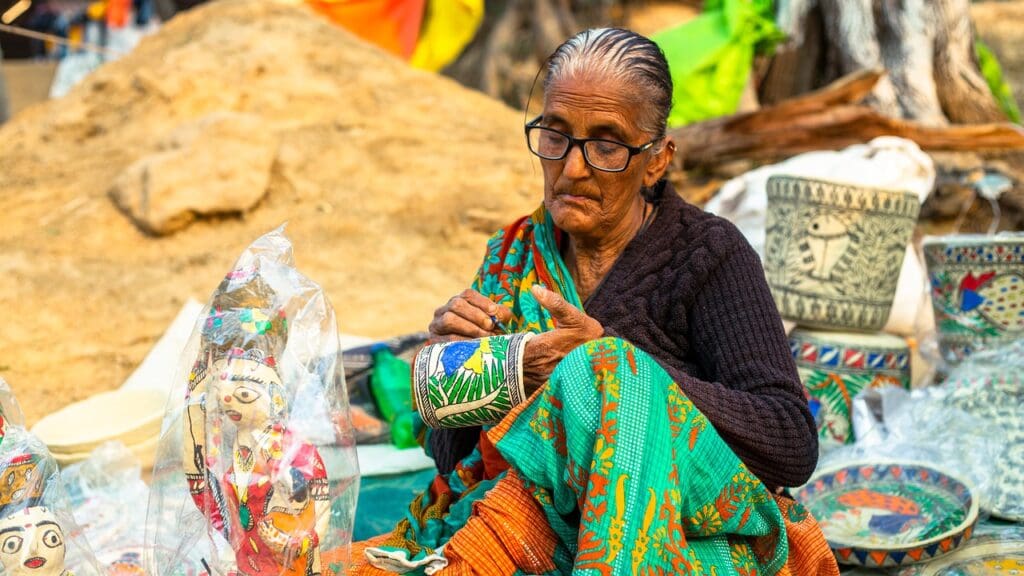

Benefits of Choosing Sustainable Gifts
Reducing Environmental Impact
When you choose sustainable gifts, you make a conscious effort to reduce your environmental impact. Sustainable gifts are often made from eco-friendly materials, produced using ethical practices, and have a smaller carbon footprint compared to mass-produced goods. By opting for presents that align with your values, you contribute to the conservation of natural resources and the reduction of waste.
Supporting Ethical and Fair Trade Practices
Sustainable gifts often come from artisans or companies that prioritize fair trade practices. By purchasing from these sources, you ensure that the labor involved in creating the gift is done under fair conditions. This supports communities and empowers individuals who may otherwise have limited opportunities. By choosing sustainable gifts, you become a part of a movement that values ethical business practices.
Promoting a Conscious Consumer Culture
Choosing sustainable gifts is a way to promote a conscious consumer culture. By demonstrating that sustainability and ethical considerations are important to you, you inspire others to make similar choices. Your gift serves as a conversation starter and an opportunity to educate others about the benefits of sustainable living. By being a conscious consumer, you can influence others and create a ripple effect of positive change.
Inspiring Others to Follow in Your Footsteps
When you give a sustainable gift, you have the opportunity to inspire others to adopt a more sustainable lifestyle. Your choice becomes a tangible example of how small changes can make a big difference. By sharing your values and the story behind the gift, you open up a dialogue about sustainability and encourage others to consider their own consumer choices. Your gift becomes a catalyst for change.
Choosing sustainable gifts not only benefits the environment but also supports ethical practices, promotes a conscious consumer culture, and inspires others to make positive changes. By participating in the sustainable gifting movement, you contribute to a better future for all.
Practical and Eco-Conscious Handcrafted Gift Ideas
Natural Beauty Products: Homemade Soaps, Candles, and Scrubs
Creating natural beauty products as gifts allows you to customize scents, ingredients, and packaging while avoiding harsh chemicals and unnecessary packaging. Homemade soaps, candles, and scrubs can be made from simple ingredients such as essential oils, natural waxes, and exfoliating agents like sugar or coffee grounds. Package them in reusable containers or eco-friendly packaging to further reduce waste.
Upcycled Home Decor: Transforming Discarded Items
Upcycling old or discarded items into unique home decor pieces is both practical and eco-conscious. From turning wine bottles into stylish lamps to repurposing wooden pallets into furniture, the possibilities are endless. These upcycled pieces add a touch of creativity and sustainability to any space while reducing the need for new materials.
Eco-Friendly Fashion: Handmade Clothing and Accessories
Handmade clothing and accessories offer a sustainable alternative to fast fashion. With basic sewing skills and sustainable fabrics such as organic cotton or hemp, you can create personalized clothing items that reflect the recipient’s style and values. From knitted scarves to upcycled tote bags, these handmade fashion gifts are both fashionable and eco-friendly.
Edible Treats Made with Love and Sustainable Ingredients
Edible treats made from sustainable and locally sourced ingredients are always a hit. Bake a batch of homemade cookies using fair-trade chocolate and organic ingredients, create a jar of homemade jam from locally grown fruits, or infuse oils with herbs and spices. These edible treats are not only delicious but also show that you have put thought and effort into creating a sustainable and personalized gift.
By choosing practical and eco-conscious handcrafted gift ideas, you create meaningful presents that reflect your values and contribute to a more sustainable world. The joy of giving is amplified when you know your gift not only brings happiness but also aligns with your commitment to sustainability.


Reduce, Reuse, Recycle: The Essence of Sustainability
Understanding the Three Rs
The concept of the three Rs – reduce, reuse, recycle – is at the heart of sustainability. Understanding each component is essential to making informed choices that minimize environmental impact.
Reduce involves minimizing the consumption of resources to decrease waste. This can be achieved by choosing products with less packaging, opting for durable and long-lasting items, and being mindful of energy and water usage. By reducing our reliance on finite resources, we contribute to a more sustainable future.
Reuse involves finding ways to extend the lifespan of products or materials by giving them new purpose. Instead of discarding items after one use, consider how they can be repurposed or passed on to someone else. Embracing the concept of reuse not only reduces waste but also promotes resourcefulness and creativity.
Recycle focuses on the proper disposal and processing of materials so that they can be turned into new products. Recycling involves separating recyclable materials, such as paper, plastic, glass, and metal, and sending them to recycling facilities where they can be transformed into new items. By participating in recycling programs, we divert waste from landfills and conserve valuable resources.
Conserving Resources and Minimizing Waste
The essence of sustainability lies in conserving resources and minimizing waste. By being mindful of our consumption habits, we can make a significant impact on the environment. Consider the following practices to help conserve resources and reduce waste:
- Conserve water by fixing leaks, taking shorter showers, and using water-efficient appliances.
- Save energy by turning off lights and appliances when not in use, utilizing natural light whenever possible, and choosing energy-efficient products.
- Practice mindful purchasing by only buying what you need and avoiding impulse purchases.
- Opt for reusable items such as water bottles, shopping bags, and food containers to minimize single-use plastics.
- Compost organic waste to enrich soil and reduce the amount of waste sent to landfills.
Every small action adds up and contributes to the overall conservation of resources and reduction of waste. By adopting sustainable habits, you become part of the solution and create a more sustainable future for generations to come.
The Environmental Impact of Mass-Produced Goods
Mass-produced goods have a significant environmental impact due to the high demand for resources, energy, and water in their production. From the extraction of raw materials to the transportation and disposal of the finished products, every step of the manufacturing process contributes to pollution, habitat destruction, and carbon emissions.
In addition, the production of mass-produced goods often involves the use of harmful chemicals, which can have adverse effects on human health and the environment. The disposal of these goods, especially when they end up in landfills, further exacerbates the problem of waste management.
By understanding the environmental impact of mass-produced goods, we can make more informed choices and support sustainable alternatives.
Taking Responsibility for Our Consumer Choices
As consumers, we have the power to make a difference through our choices. By being mindful of our purchasing decisions and opting for sustainable alternatives, we can drive demand for eco-friendly products and support businesses that prioritize sustainability.
Taking responsibility for our consumer choices involves asking questions about the products we buy. Where do they come from? How were they made? What impact do they have on the environment and the communities involved in their production?
By conducting research, supporting sustainable brands and businesses, and embracing the principles of reduce, reuse, and recycle, we can make a positive impact on the environment and contribute to a more sustainable future.
Choosing Eco-Friendly Materials for Your DIY Projects
Evaluating the Environmental Impact
When choosing materials for your DIY projects, it’s important to evaluate the environmental impact of each option. Consider the following factors:
-
Raw materials: Are the materials renewable or finite resources? Opt for materials that are responsibly sourced and have a lower impact on ecosystems, such as sustainably harvested wood or organic cotton.
-
Production process: How are the materials manufactured? Look for materials that require less energy and water during production, or choose recycled materials that divert waste from landfills.
-
Transportation: Where are the materials produced and how far do they need to travel? Choosing locally sourced materials reduces the carbon emissions associated with transportation.
By considering the environmental impact of different materials, you can make more sustainable choices for your DIY projects.
Opting for Organic, Natural, and Biodegradable Materials
Organic, natural, and biodegradable materials are excellent choices for eco-friendly DIY projects. These materials minimize environmental impact and often have a lower carbon footprint compared to synthetic alternatives. Here are a few examples:
-
Organic cotton: Choose organic cotton fabric instead of conventionally grown cotton, which is heavily treated with pesticides and synthetic fertilizers. Organic cotton is grown using sustainable farming practices that prioritize soil health and biodiversity.
-
Bamboo: Bamboo is a fast-growing, renewable resource that requires no pesticides or fertilizers to thrive. It can be used in various DIY projects, such as furniture, kitchen utensils, and even clothing.
-
Wool: Sustainable wool is a biodegradable and renewable material that can be sourced from ethically raised animals. It is widely used in DIY projects such as knitting, felting, and upholstery.
-
Cork: Cork is a sustainable and renewable material that can be used for a variety of purposes, including flooring, wall coverings, and even jewelry. Cork is harvested from the bark of the cork oak tree, allowing the tree to continue growing.
Choosing organic, natural, and biodegradable materials not only reduces your environmental impact but also adds a touch of nature’s beauty to your DIY projects.
Avoiding Harmful Chemicals and Plastics
Harmful chemicals and plastics have a detrimental impact on the environment and human health. When choosing materials for your DIY projects, it’s important to avoid these substances. Here are a few tips:
-
Avoid plastics: Choose alternative materials to replace single-use plastics, such as stainless steel, glass, or natural fibers. These materials are more durable, have a longer lifespan, and are often recyclable or biodegradable.
-
Look for non-toxic options: When selecting paints, adhesives, or other materials that contain chemicals, opt for non-toxic or environmentally friendly alternatives. Look for certifications like “low VOC” or choose water-based formulas.
-
Read labels: Read product labels carefully to understand the ingredients and potential hazards. Avoid materials that contain harmful substances such as lead, mercury, or phthalates.
By consciously avoiding harmful chemicals and plastics, you ensure that your DIY projects align with your commitment to sustainability and protect both the environment and your health.
Sourcing Sustainable and Fair Trade Supplies
Sourcing materials that are both sustainable and fair trade is an excellent way to support ethical practices and contribute to a more just society. When purchasing supplies for your DIY projects, consider the following:
-
Fair trade certification: Look for materials that are certified as fair trade, ensuring that the workers involved in their production are paid fair wages and work under safe conditions. Fair trade products often support local communities and prioritize sustainable farming or manufacturing practices.
-
Local artisans and businesses: Instead of buying mass-produced materials, support local artisans and businesses that prioritize sustainability. This not only reduces the carbon footprint associated with transportation but also contributes to the local economy.
-
Sustainable sourcing: Research the supply chain of the materials you are considering and choose suppliers that prioritize sustainability. This may involve using recycled or upcycled materials or choosing companies that have transparent and responsible sourcing practices.
By sourcing sustainable and fair trade supplies, you can create DIY projects that align with your values and actively contribute to a more sustainable and equitable world.
